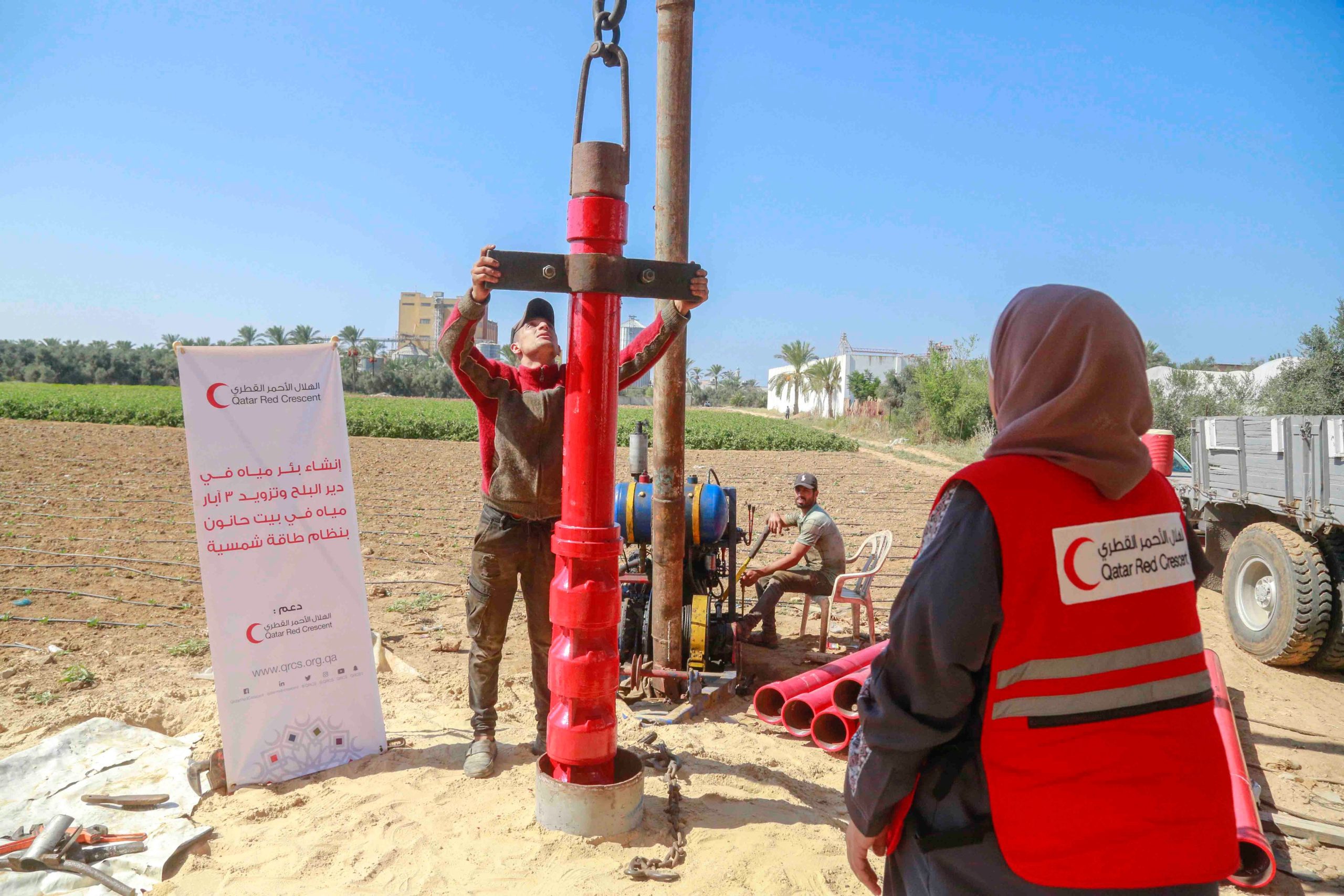Gaza’s population receives an average of 12 hours of electricity per day, even less during the Israeli bombardments of the city.
The Qatar Red Crescent Society (QRCS) has completed a QAR 1.7 million solar power and water project in Gaza on Sunday that is set to provide power to tens of thousands of Palestinians living under Israel’s ongoing siege.
The Qatari entity installed a solar power system at three water wells in the Beit Hanoun municipality in addition to a water well at the Deir Al-Balah municipality in Gaza.
The project will benefit at least 40,000 Gazans living under the world’s largest Israel-imposed blockade, QRCS said in a statement.
“The construction of the new well, with support from QRCS, will improve the severely inadequate domestic water supply. The water well is expected to serve 10,000 people, by providing 15,000 cubic meters of water to homes,” Radwan Karim, Director of Water Services at the Deir Al-Balah Municipality, southern Gaza, said.
QRCS has implemented other similar projects in recent years to ensure the provision of much-needed power for civilians in the besieged enclave, targeting health facilities, universities, and homes of disadvantaged families in particular.
‘Chronic electricity deficit’
The Palestinian city has been under an illegal air, land and sea siege by Israel since 2007 that has deprived its 2.3 million population of access to basic resources.
The blockade turned Gaza into what many Palestinians and rights groups have described as the world’s “largest open-air prison”.
Over the last decade, Gaza has faced what the United Nations described as “a chronic electricity deficit” that was made worse by several rounds of Israeli aggression on the besieged city.
The local population receives an average of 12 hours of electricity per day, though this is slashed during Israeli bombardments of the city.
Israeli occupation forces regularly close off Gaza’s only commercial crossing, Karm Abu Salem, during escalations, preventing the crucial entry of fuel trucks that keep the city’s sole power plant running.
In May, Israel launched a brutal attack on the strip that killed 33 Palestinians, including children.
Meanwhile, some Palestinians in Gaza have shifted to solar power use over the years to tackle blackouts caused by fuel shortages and rising electricity bills. A total of 20% of Gaza’s households relied on solar energy by 2022, per figures published by the journal Energy, Sustainability and Society.
Israel also controls up to 90% of water in the besieged enclave, and more than 96% of water in Gaza’s aquifers are not safe for consumption. In turn, this forces Palestinians to buy water at inflated prices despite their full right to access it for free.







